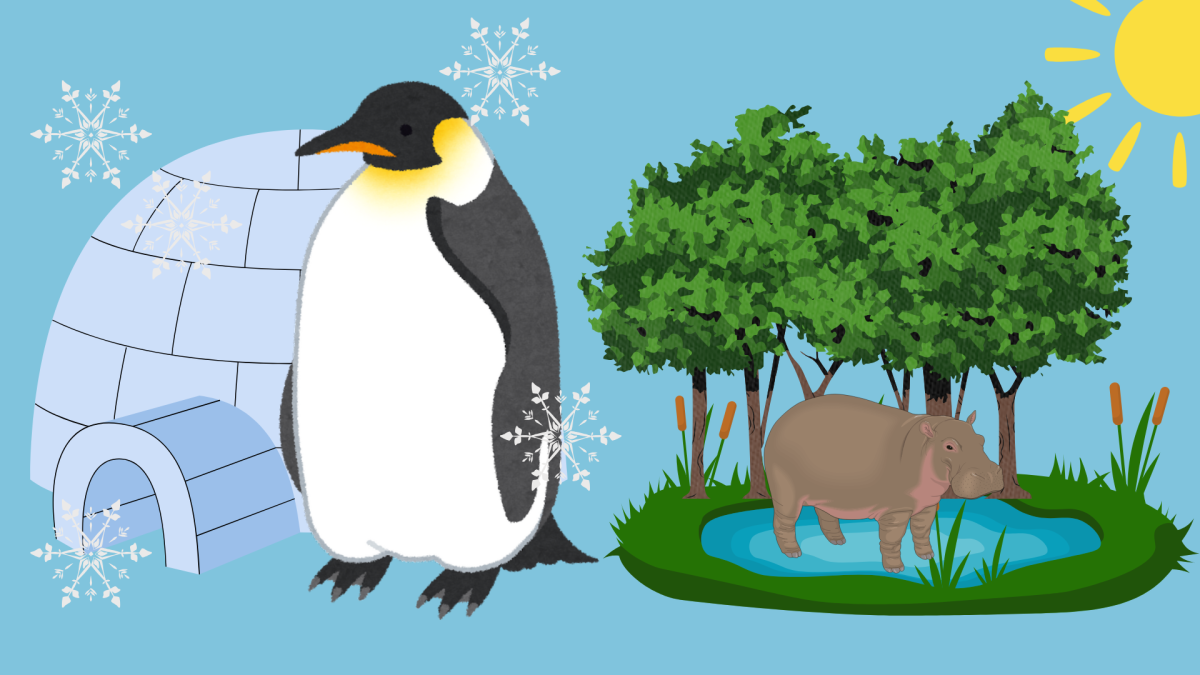Recently, all eyes have been on baby animals outside of the United States, whose popularity has drawn cult-like followings on social media.
One of those animals, Pesto, is an 11-month-old king penguin from the Sea Life Melbourne Aquarium in Australia, who is already breaking records around the world. At his current age, Pesto is reported to weigh over 50 pounds, while the average weight for an adult king penguin ranges from 30-35 pounds.
The Sea Life Melbourne Aquarium has been open since 2000 and has been home to some very intriguing animals. The aquarium showcases many animals including fiddler sharks, crocodiles, turtles, lungfish and many more. The Australian aquarium also includes a mermaid garden complete with sharks. Of all these attractions, it is Pesto who has the biggest fan base currently.
One of the factors contributing to Pesto’s considerable size is his outsized appetite. King penguins are known for their large stomachs and eating as many fish as they can. Studies show that in an environment like Pesto’s, penguins tend to average 16 fish per day; yet, Pesto averages 25 or more in a day. In species like these, penguins tend to lose their baby weight as time goes on, so it is expected that Pesto will not always remain this large as he continues to grow.
Another popular animal who has gained a great deal of attention for her appearance, Moo Deng, is a 2-month-old pygmy hippopotamus born at the Khao Kheow Open Zoo in Thailand.
The Khao Kheow Open Zoo has been open since 1978, and has since expanded since their original opening. This zoo is home to over 8,000 animals in Bang Phra, Thailand. A popular feature of this zoo is the opportunity for an up close view at some of these animals they exhibit.
In July, Moo Deng was born in Khao Kheow Open Zoo, where she still resides there to this day. Moo Deng is apart of an endangered species; there are roughly 2,000-2,500 pygmy hippopotamuses left in the wild. A large part of a pygmy hippos habitat is a swamp or river, within a forest. Unfortunately, deforestation and pollution have taken a big toll on these habitats. Moo Deng is bringing much needed attention to her species and hopefully making a positive change day by day.
Linganore High School (LHS) special education teacher and former agriculture teacher Ashley Abuelhawa voiced her opinion on how popular Pesto and Moo Deng are, and their journey to fame.
“I think that Americans especially are obsessed with cute little animals, and I think that not a lot of people have seen a baby hippo like her, so they are intrigued [to find out more].”
Pesto was born 11 months ago, which may make some wonder why he has only gained popularity now. For king penguins, their keepers can only know their gender confidently with a blood test. It was only when the aquarium threw Pesto his gender reveal party that he began to draw attention and intrigue.
One of the factors contributing to Pesto’s popularity is his extremely large size for his breed. Pesto’s father, Blake, weighs 39 pounds, making Pesto already bigger than his father at less than a year old.
While Pesto and Moo Deng are without a doubt the most popular creatures today, others like Noodle the Pug were previously the animal stars of the world. This raises the question of how people come to discover these animals online and how they became so popular.
A common cause of an animal’s viral popularity is social media and platforms such as TikTok or Instagram. This was the case for both Pesto and Moo Deng, who both had their own TikTok accounts or were featured on their exhibits’ accounts.
One recurring trend with these popular animals is how they rise to fame when they are babies, but once they grow up, they lose their popularity. This is similar to families visiting animal shelters wanting a puppy and ignoring the well-behaved dogs who have likely been at the shelter for much longer. Even worse is the unfortunate trend of returning or leaving dogs at shelters once they no longer have the puppy appeal.
While Pesto and Moo Deng reside on opposite sides of the world, they do share one dire connection. Since both of them are in zoos or aquariums, they do not have access to their natural habitat. Their species are borderline endangered animals with their habitats deteriorating on a daily basis. Penguin habitats continue to face growing problems due to climate change and other anthropogenic factors such as commercial fishing, which is a penguin’s biggest food source in the wild. Similarly, pygmy hippos face deforestation and pollution of their natural habitat, contributing to their status as an endangered species.
Abuelhawa further elaborated how she feels that people forming a connection to these animals can motivate them to support the conservation of their species.
“I think that the more people are aware of these animals, the more that they’re gonna have some buy-in to them,” Abuelhawa said. “So, if they see things [about how] those animals are endangered, or their habitats are endangered, I think that they’re more likely to do something about it. [Particularly,] If they have what they feel is a personal connection to the animals themselves,”
Part of the reason why Moo Deng and Pesto’s popularity brings good publicity is because it triggers a nurturing response in people. This motivates them to make a change to help these animals. This can build a strong community around these endangered species and benefit them in the future.
“This [Pesto’s fame] can be good publicity for penguins, I think, because people really like penguins,” said LHS sophomore Morgan Fleming. “Pesto’s popularity will benefit them in the long run.”



















